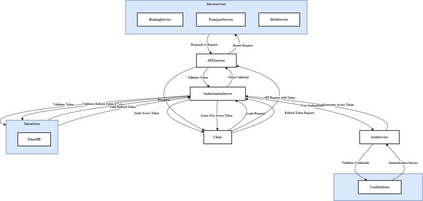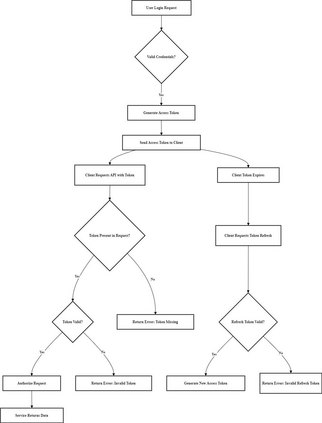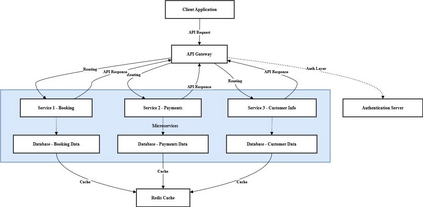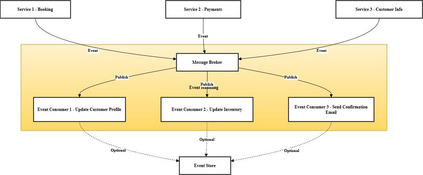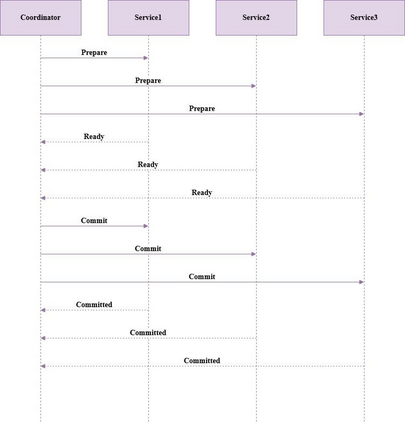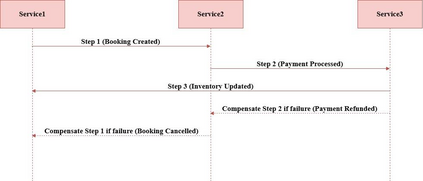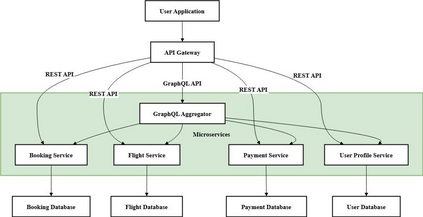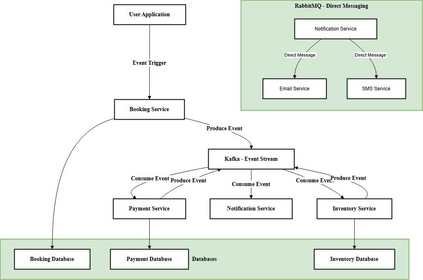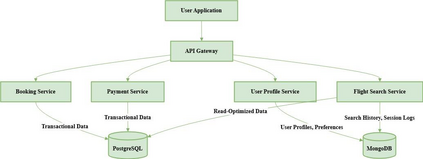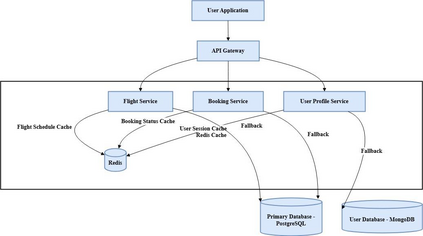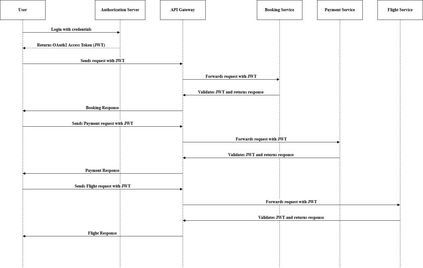This paper introduces a microservices architecture for the purpose of enhancing the flexibility and performance of an airline reservation system. The architectural design incorporates Redis cache technologies, two different messaging systems (Kafka and RabbitMQ), two types of storages (MongoDB, and PostgreSQL). It also introduces authorization techniques, including secure communication through OAuth2 and JWT which is essential with the management of high-demand travel services. According to selected indicators, the architecture provides an impressive level of data consistency at 99.5% and a latency of data propagation of less than 75 ms allowing rapid and reliable intercommunication between microservices. A system throughput of 1050 events per second was achieved so that the acceptability level was maintained even during peak time. Redis caching reduced a 92% cache hit ratio on the database thereby lowering the burden on the database and increasing the speed of response. Further improvement of the systems scalability was done through the use of Docker and Kubernetes which enabled services to be expanded horizontally to cope with the changes in demand. The error rates were very low, at 0.2% further enhancing the efficiency of the system in handling real-time data integration. This approach is suggested to meet the specific needs of the airline reservation system. It is secure, fast, scalable, all serving to improve the user experience as well as the efficiency of operations. The low latency and high data integration levels and prevaiing efficient usage of the resources demonstrates the architecture ability to offer continued support in the ever growing high demand situations.
翻译:暂无翻译


